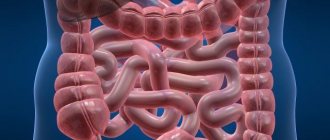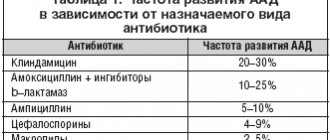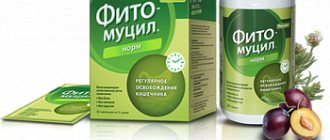Gastritis is one of the most common pathologies of the gastrointestinal tract caused by the inflammatory process of the mucous membranes of the stomach. The disease can occur in both acute and chronic forms.
Without timely treatment and preventive measures, gastritis can cause a number of severe complications, often ending in the operating table. Among the symptoms of the disease is diarrhea. Defecation disorders with diagnosed gastritis are an alarming signal that may indicate the entry of the disease into an acute phase.
Causes
The mucous membrane, which covers the entire gastric surface, is involved in the breakdown of proteins, carbohydrates and fats supplied with food. When it becomes inflamed, gastric function is disrupted, the production of gastric juice decreases, and its acidity—an indicator of hydrochloric acid—is disrupted. Any deviation in acidity is fraught with stool problems.
Indirect causes of diarrhea with gastritis are:
- eating unusual or new foods;
- intoxication due to drug therapy;
- bacterial infections;
- neglect of hygiene rules;
- stressful situations.
How to stop and treat diarrhea
Treatment of diarrhea is symptomatic and pathogenetic. Symptomatic therapy involves the immediate elimination of diarrhea and its consequences. In particular, adsorbents are used - polyphepane, smecta, filtrum. They normalize the functioning of the intestinal mucosa and protect it from toxins. Due to this, absorption processes are improved. Loperamide or Imodium tablets can help stop diarrhea quickly. They reduce the motor activity of the digestive tract.
With prolonged profuse loose stools, the patient needs to replenish fluid and electrolyte losses. Rehydration therapy is carried out with the drugs Oralit, Rehydron, Gastrolit. The volume of fluid injected should be 1.5 times the loss.
Pathogenetic treatment takes into account the cause of diarrhea and eliminates or corrects it. In this case, therapy will depend on the type of gastritis. The first priority is to normalize nutrition. In most cases, the appearance of diarrhea with gastritis is associated with a violation of the diet. Detailed information about rational nutrition for hyper-, hypoacid, atrophic, and erosive gastritis can be found on our website. Its main principles are mechanical, thermal and chemical sparing of the stomach.
In case of inflammation associated with Helicobacter pylory, the pathogen is eradicated with a complex of drugs, including antibacterial agents.
Hyperacid gastritis requires the prescription of drugs that suppress the secretion of hydrochloric acid (omez, ranitidine, Losek), antacids (Maalox, Almagel, Gaviscon). Hypoacid – enzymes (Creon, Pancreatin, Festal), prokinetics (Motilium).
With chronic diarrhea, symptoms of deficiency of nutrients and biologically active substances often appear. The patient loses weight, his hair and nails become brittle, and his skin peels. In such cases, it is important to introduce vitamin and mineral complexes into the diet to compensate for their deficiency.
Forms of diarrhea with gastritis
Diarrhea that occurs against the background of exacerbation of gastritis is usually differentiated into two main forms: short-term and prolonged.
- In case of short-term diarrhea, the duration of stool disorder does not exceed 3 days. With dietary correction, normalization of the emotional background, and cessation of medications (if prescribed), diarrhea will stop spontaneously.
- The duration of prolonged diarrhea can exceed 5 or more days. This is the most dangerous form of diarrhea with gastritis, as it entails dehydration of the body - a dangerous condition that requires immediate emergency measures. The structure of the stool is watery, sometimes with an admixture of blood.
Important! Black stool with a tarry consistency may indicate internal bleeding. In this case, you must immediately consult a doctor.
Diarrhea with different forms of gastritis
Diarrhea can be acute or chronic. Chronic diarrhea lasts from 2-3 weeks or more and is less treatable.
Acute gastritis is often accompanied by diarrhea, especially if it is associated with an infectious process. The stool is liquid or mushy with undigested food particles and mucus. Associated symptoms: vomiting, nausea, belching, abdominal pain.
Diarrhea is also characteristic of hypoacid inflammation. Against this background, the stool is not too liquid, foul-smelling, and there is an increased discharge of gases.
A similar picture is typical for atrophic inflammation of the stomach. Feces often have a greenish tint due to the admixture of bile. With reduced activity of pancreatic enzymes, steatorrhea develops. The stool becomes ointment-like, grayish, with a whitish coating.
For gastritis with high acidity, diarrhea is less typical. It is observed, for example, in Zollinger-Ellison syndrome (formation of a tumor that produces gastrin). In this case, the stool is more uniform, with a minimum amount of pathological impurities.
The presence of diarrhea with gastric erosions depends on the level of acidity. A characteristic feature is the penetration of blood into the stool, which is why it acquires a dark color. Sometimes the admixture of blood is not visible to the eye; it can only be detected by laboratory analysis of stool for occult blood.
Note. Diarrhea can be a symptom not only of gastritis, but also of other diseases of the gastrointestinal tract: enterocolitis, Crohn's disease, irritable bowel syndrome, and infectious process. Therefore, if multiple loose stools appear, you need to contact a therapist or gastroenterologist to clarify the diagnosis.
Diagnostics
If diarrhea has not stopped after 3 days, you should consult a specialist. A gastroenterologist specializes in the diagnosis and treatment of gastrointestinal diseases, including gastritis. Taking an anamnesis begins with asking the patient about the frequency of bowel movements, the structure and smell of stool, and associated symptoms (nausea, vomiting, fever, pain in the epigastric region, flatulence, etc.).
In addition to the information that the doctor receives from the patient, additional examination is necessary, which includes:
- general blood analysis;
- general urine analysis;
- feces for bacterial culture (to identify a possible pathogen);
- gastroduodenoendoscopy (to assess the condition of the gastric mucosa);
- biopsy of a fragment of the gastric mucosa;
- fractional study of gastric juice (to assess its composition and identify possible deviations from the norm).
Treatment
Menu for gastritis
It is extremely undesirable to independently treat diarrhea with gastritis, since incorrectly chosen therapeutic tactics can significantly aggravate the situation. Regardless of the form of diarrhea, it is necessary to avoid certain foods and drinks that cause diarrhea.
Drug therapy is prescribed by a doctor based on the data obtained and laboratory tests. If a pathogen is identified (Escherichia coli, Helicobacter pylori), antibiotics are prescribed according to an individual regimen.
Measures are being taken to restore the secretory function of the stomach. For this purpose, antacids or acid blockers are included in the prescription list. To reduce general intoxication of the body, adsorbents are prescribed - Activated carbon, Polysorb, Enterosgel, etc.
If diarrhea is accompanied by spastic pain, antispasmodics are prescribed. To restore the microflora of the gastrointestinal tract, drugs based on lacto- and bifidobacteria are prescribed.
Complications
Prolonged diarrhea can lead to quite serious complications, such as:
- hypovolemia and sepsis;
- acute renal failure;
- hypocalcemia;
- haemorrhoids;
- internal bleeding.
However, the most dangerous complication is dehydration. It occurs gradually, without causing any obvious feeling of discomfort in the patient. The mechanism of this phenomenon is simple: along with feces, the body loses a lot of water, and with it important microelements that regulate metabolism.
If diarrhea is accompanied by fever and profuse sweating, fluid loss increases many times over. The loss of 25% of the total volume of fluid contained in the blood, intercellular space and cells is considered critical. In this case, tissue ischemia develops, threatening the patient's life.
Recognizing dehydration is not difficult. It is characterized by the following features:
- dry mouth;
- saliva viscosity;
- feeling of thirst;
- decreased urge to urinate.
If pathological dehydration occurs, it is necessary to urgently take measures to restore the water-salt balance. To do this, you need to take Regidron(S), a pharmaceutical drug that restores the water and electrolyte balance in the body. First you need to drink 300–400 ml of solution, then take 150 ml hourly.
Important! If you do not have Regidron (C) in your home medicine cabinet, you can prepare the healing solution yourself. To do this, add 1 teaspoon of table salt and 4 teaspoons of sugar to 1 liter of boiled water and mix thoroughly.
Diet
Exacerbation of gastritis, manifested in the form of diarrhea, requires careful attention to the food consumed. Since it can be quite difficult to decide on the choice of products on your own, it is advisable to consult a doctor for additional advice. Typically the recommendations boil down to the following:
- exclusion from the diet of foods and dishes that irritate the gastric mucosa (spicy, smoked foods, baked goods, spices, legume-based dishes, dairy products, canned food);
- inclusion in the diet of dishes based on vegetable broths, water-based porridges, vegetable purees, and steamed beef.
If after taking the recommended food the pathological condition worsens, you should immediately inform your doctor. In this case, the diet is selected individually.
Can there be diarrhea with gastritis? The answer is clear: “Yes.” To avoid fatal consequences for the body, the patient must be informed about the possibility of the onset of this pathological condition and, if necessary, be able to consult a doctor in time.
Treatment and prevention of psychogenic diarrhea
Psychogenic diarrhea usually occurs against the background of chronic stress, neurotic disorders, depressive states and its appearance aggravates the situation. The suddenness of an irresistible urge to defecate and the awareness that the process is uncontrollable increase anxiety, increase nervous tension and close the vicious circle of the disease.
Treatment of IBS and its symptom - diarrhea that occurs due to nervousness - includes the following methods.
1.Psychotherapy
The basis of treatment is non-drug methods of influence. First you need to find and understand the psychological problem that leads to diarrhea. Therefore, treatment of diarrhea due to nervousness should include work with a psychologist or psychotherapist, psychotherapy sessions, and possibly taking psychotropic drugs: anxiolytics (drugs that reduce anxiety) and antidepressants1. Reducing the level of anxiety will help not only solve the problem of neurogenic diarrhea, but also eliminate many other troubles associated with the emotional background.
2.Organization of work and rest regime
To reduce your stress levels, it is important to:
- stick to a daily routine;
- alternate work with rest, mental stress with physical activity;
- sleep at least 8 hours a day;
- spend at least 2 hours a day in the fresh air - oxygen is necessary for normal brain function;
- do physical education.
3.Diet
Neurosis and neurogenic diarrhea are a reason to reconsider your diet. Experts advise eating less foods containing lactose, fructose, sweeteners, gluten, caffeine, polyols (polyhydric alcohols), legumes5. It is advisable to exclude poorly tolerated foods and alcohol, reduce the consumption of fatty, fried, spicy, smoked foods. It is recommended to eat more cheeses such as feta and brie, bananas, blueberries, melon, grapefruit, kiwi, lemons, limes, oranges and strawberries5. Also useful are eggplants, olives, potatoes, nuts and protein foods in general5.
4.Physiotherapy
In order to correct intestinal motor activity and normalize the psychological state, doctors prescribe physical therapy, massage, reflexology, herbal medicine and balneotherapy.










